By Jonathan Mwesigwa Sekiziivu
It is a great pity, indeed, that as the people of Buganda are still reckoning their future—with or without the rest of Uganda—and yet to fully come to grips with the genocidal annotations made by the “Fountain of Honour” against them and their Kabaka (king), who instead should _“work towards the promotion of national unity, peace and stability… abide by, uphold and safeguard this Constitution and the laws of Uganda…,”_ and moreover _“promote their welfare…”_ they have, again, been needlessly drawn into the narcissistic chat on the _Mailo_ land tenure system by the same man who brazenly has imposed himself upon the country for well-over thirty-five years now!
Mr. Yoweri Museveni, whose moniker is _”Ssaabalwanyi”_ (warmonger-in-chief), inaptly believes that the use of force/violence, is the panacea to every contest. Forlornly, though, this “confidence” is very much informed by an own history of violence and greed for wealth and power, and thus always clouds his outlook insofar as the legitimate interests and concerns of other parties—private or public or both—are concerned. Who is not persuaded that he, like the British imperialists, is suffering from _”…greed for gain…and a lust of power over the destinies of other peoples…_ [and very much believes] _that Force_ [whatever the form] shall…be the only element by which [his] _sway is maintained…”_? What a lot of absolute nonsense! —cf. Sir Henry Hamilton Johnston’s statement in Ham Mukasa’s _Uganda’s Katikiro in England_ (1904).
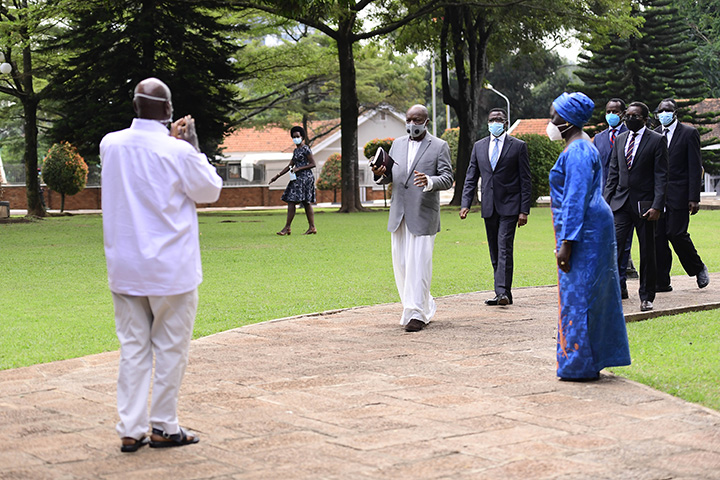
President-Museveni-welcomes-Kabaka-Mutebi-on-August-3-2021-at-State-House-Nakasero.
For instance, in _My Life’s Journey_ (2011 & 2012) his wife intensely traces probably the first signs of swindle in Museveni, _“[W]hen my father died in 1955, ‘his father’, Amos_ [Kaguta], _sent him to bring some milk in a big milk pot ‘ekyanzi’ to offer condolences on behalf of his family. So, Yoweri made his way to Irenga… My mother apparently told him to take the milk pot into the house, but Yoweri…went and sat in the garden, drank some of the milk, poured the rest and went home. Upon his return home, ‘his father’ asked him if he had delivered the message to my mother. He replied that he had done so[!]”_
In the late 1960s as a university student at Dar es Salaam in Tanzania Museveni took great interest in Frantz Fanon’s work, The Wretched of the Earth (1967), which advocates “armed violence as the highest form of political struggle [against decolonization]. In his 1968 research paper, _Fanon’s Theory on Violence: Its Verification in Liberated Mozambique_—edited and published by Nathan M. Shamuyarira in _Essays on the Liberation of Southern Africa_ (1971)—Museveni reveals that, _“This is what I wanted to test in one Sub-Saharan area…Mozambique [and by extension in one Eastern Equatorial African area, Uganda and beyond].”_
Conversely, Kabaka Mutebi has stressed selflessness, service, truth, justice, cooperation, accommodation, mutual respect and affection, and consensus. Already deeply disturbed by the President’s attitude, the Kabaka has not minced his words in reminding him that he owes his tremendous power to the people of Buganda, who although appearing to be “weak” have time and again exposed the frailty of “strong” regimes. (cf. 1 Corinthians 1:27)
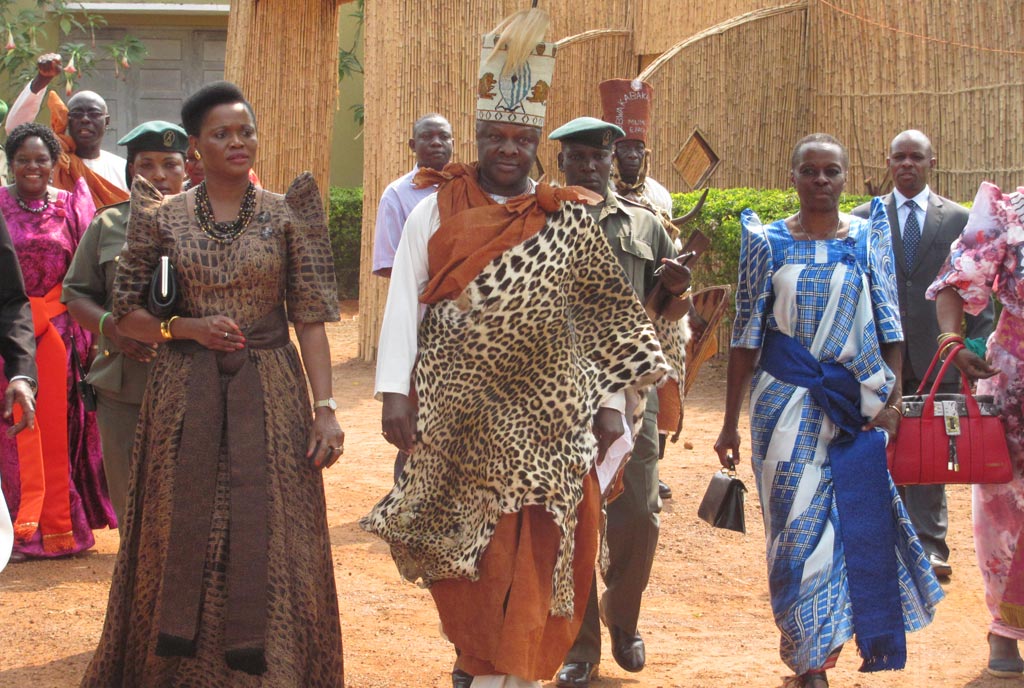
Kabaka-Mutebi-flanked-by-Nabagereka-at-the-23rd-coronation-at-Kabasanda.
But the scale of Museveni’s imperialistic mind is of little surprise, and so, whereas it can be excused it cannot at the same time be over exaggerated. Historically, Hitler’s kind tend to run countries as though they are their own private estates; claim personal interest in their assets and natural resources; feel un-obliged to serve the citizenry; constantly view them in guerilla terms; and are unapologetic about the far-reaching impact of their intrigues. But who, really, in recent months, let alone years has not witnessed what a scold he is when Ugandans have sought statesmanship from him only to be shortchanged with crèche stories and rhymes—a fireplace reserve? Hence, I buy the view that there has been so much talk recently about how monstrously “evil” and “unjust” Buganda’s _Mailo_ system is that it has been easy to “forget” the stream of injustices including—crimes against humanity—meted out by the junta against Ugandans across the country long before its capture of state power and soon thereafter.
Well, one strongly believes that it would serve the Museveni regime to remember that the _Land Question_, in general, and the _Mailo_ tenure, in particular, are political mines, which if you will forgive me, only fools would go out of their way to endlessly tinker with in the “hope” that that will secure them the support of the “landless”. This Question is part of the unresolved bigger _ (B) Uganda Question_ touching the political and socio-economic future of the people of Buganda and other Ugandans for which they aspire.
The continued mismanagement of this _Question_, undoubtedly, portends another constitutional crisis worse than the kind that have previously characterised our political history. The apparent careless handling of this _Question_ not only spells fatal results for the entire country, but also for those particular individuals perpetrating the carelessness, as well as for their families and relations. To put it crudely, you can be sure that Ugandans, in general, and the Baganda, in particular, will not go down without a fight in defence of their respective heritages and legitimate interests, rights and freedoms!
_”Land,”_ ‘The Odoki Commission’ noted twenty-eight years ago, _”is viewed by the people as a vital natural resource and common heritage which cannot be matched by any other natural resource…_ [and] _is one of the issues on which the people have expressed a great diversity of views. It is unlikely that a consensus will emerge on the matter in the near future. This is because Uganda is a country of diversity in terms of cultural, social and economic experience and orientation.”_
_”Different communities in Uganda,”_ the Commission went on _”are used to different kinds of land tenure and policy. Each community tends to extol the virtues of the policy and land management to which it is used in relation to other systems.”_— _The Report of the Uganda Constitutional Commission: Analysis and Recommendations_, (1993).
Of wider import to the instant discussion, though, is the historical _”… democratic expression of the people of Buganda irrespective of their station in life”_ to ‘The Odoki’, ‘The Ssempebwa’, and ‘The Bamugemereire’ Commissions in 1991, 2003, and 2018 respectively, that:
1. It is their _…hope_ [based on the principles of constitutionalism and the rule of law other than the rule by law] _…that…Buganda will happily take her place and play her role together with other nationalities in unity and concord for the benefit of all peoples of Uganda…_ [and] _that the Government of the day being only a part of the people should accept the will of the people for whose governance the Constitution_ [was presumably] _promulgated;
2. [The] _land holding system known as Mailo land tenure_ [be reinstated] _as it existed in the Federal States of Buganda and Bunyoro as by the 15th day of April, 1966;_
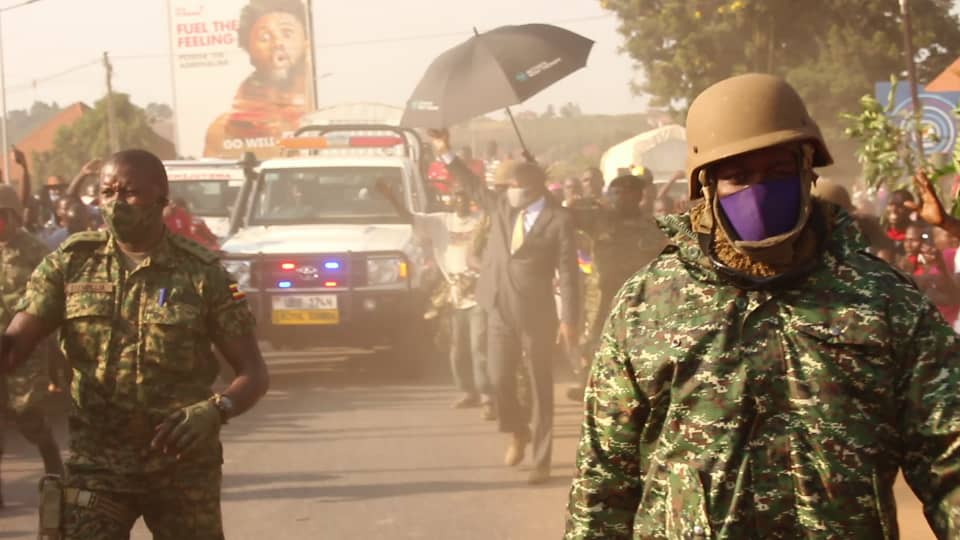
Kabaka Mutebi on his way to Buddu, July 30 2021 for his 28th coronation celebration
3. [The] _Mailo system… should be extended to any other Federal State which may want it._
4. [It] _must be a constitutional right for every Ugandan to acquire, hold and own land in any part of Uganda, regardless of their ethnic origins or the location of the land in any part of Uganda, regardless of their ethnic origins or the location of the land in Uganda._
5. _There should be no discrimination of any kind in relation to land ownership amongst citizens of Uganda on the basis of ethnic origin or other such considerations._
6. There be _…a more balanced constitutional position_ [to] _accommodate the interests of occupants and landowners, and facilitate development._
7. In accordance with the law, no _…Ugandan or non-Ugandan_ should be deprived _from acquiring land or enjoying full and peaceful tenure of land in Buganda_ or in any other part of Uganda, indeed.
8. [The] _Constitution [should] address the title to the 9,000 square miles of land that was entrusted to the British Crown Government under the 1900 Uganda Agreement, which land was returned to the Kingdom of Buganda at independence and subsequently forcefully and unilaterally converted to public land after the forceful and unconstitutional abolition of the Kingdom in 1966._
9. _The restoration of these 9,000 square miles does not seek, and is not intended to disturb the peaceful and quiet enjoyment of the land by the people, bodies or institutions currently occupying the land,_ [but] _to address a historical injustice_ [cf. _The NRM/A Ten-Point Programme_] _and to find a meaningful compromise that takes into account present day realities in Uganda._
10. The Bamugemereire Commission _…abandons the proposal to abolish the Mailo land tenure or to fuse it with other tenures into a single tenure_ because the _…Mailo land tenure is uniquely part of Buganda’s history and is now deeply engrained in its culture, customs and traditions._
11. [The] _Government should capitalize and use the Land Fund to liberate landless groups and remove the duplicity of ownership on Mailo land._
12. [The] _Government drops the proposed amendment on compulsory acquisition of individually owned land before adequate compensation to facilitate government projects._
13. [A] _special land tribunal for the quick determination of disputes arising from valuation of project affected persons…_ be established.
14. [The] _Government expedites the complete return of expropriated land to the Kingdom of Buganda pursuant to Article 26 of the Constitution, the Traditional Rulers (Restitution of Assets and Properties) Act of 1993, and the Agreement on the return of certain assets between the Government of Uganda and the Kabaka of Buganda of 2013._
15. [The] _Government holistically reviews and revises the Land Act to improve land management and administration._
16. The Government should _introduce effective and quick lands dispute resolution mechanisms across the country…_ including—the re-establishment of _…the District Land Tribunals…as a full time dispute resolution mechanism with and expanded membership. Additionally, the Land Division of the High Court should get more judges to make timely judgements and clear case backlog._
17. [A] _federal system of government be reinstated so that each area in Uganda can manage, control, protect and promote the planned utilization of its land in a manner consistent with its peculiarities and development aspirations._
There is, as a final note, far more to say about the (B) Uganda Land Question than one has managed to highlight so far. Be that as it may, one cannot help but notice the rather acute cynicism in Mrs. Museveni’s exhortation published as _A Letter to all Ugandan children who call me Maama by choice_ in the _New Vision_ of Friday, 24 May 2020 thus: _”Africa committed the grave sin of enslaving the children of Israel for 400 years, which returned to haunt the African continent with the advent of the evil Trans-Atlantic slave trade.”_ What “Maama” curiously falls short of telling “her children”, though, is the kind of fate awaiting those who have plundered the “country of their birth” and meted out a stream of other injustices against the natives for almost four decades, and still counting!
The writer is a Lawyer.
jmwesigwas@gmail.com | @JMwesigwa_S
Do you want to share a story, comment or opinion regarding this story or others, Email us at newsdayuganda@gmail.com Tel/WhatsApp........0726054858

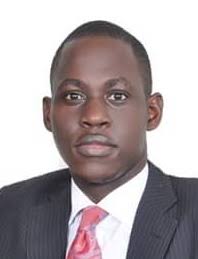


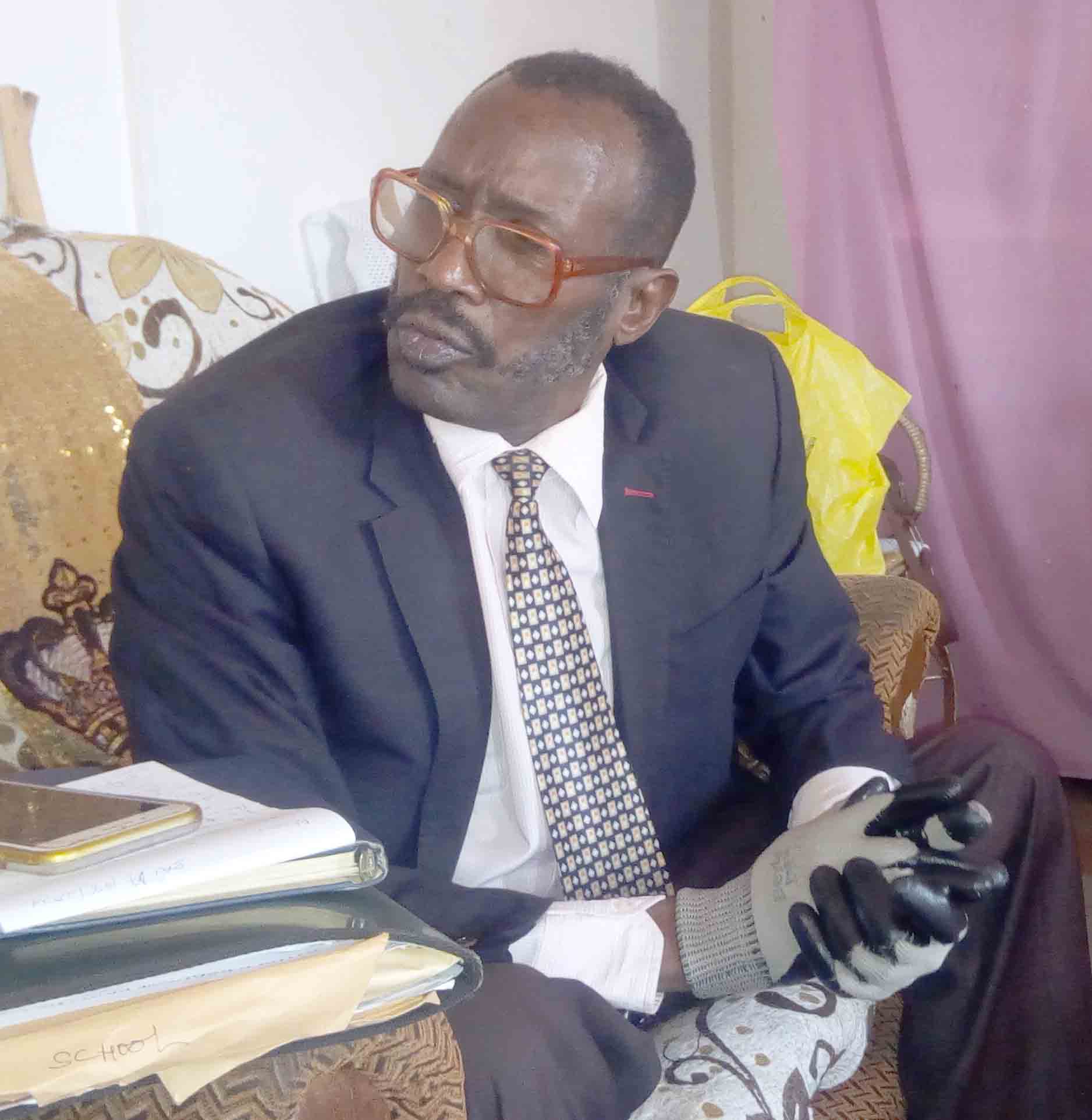


Discussion about this post